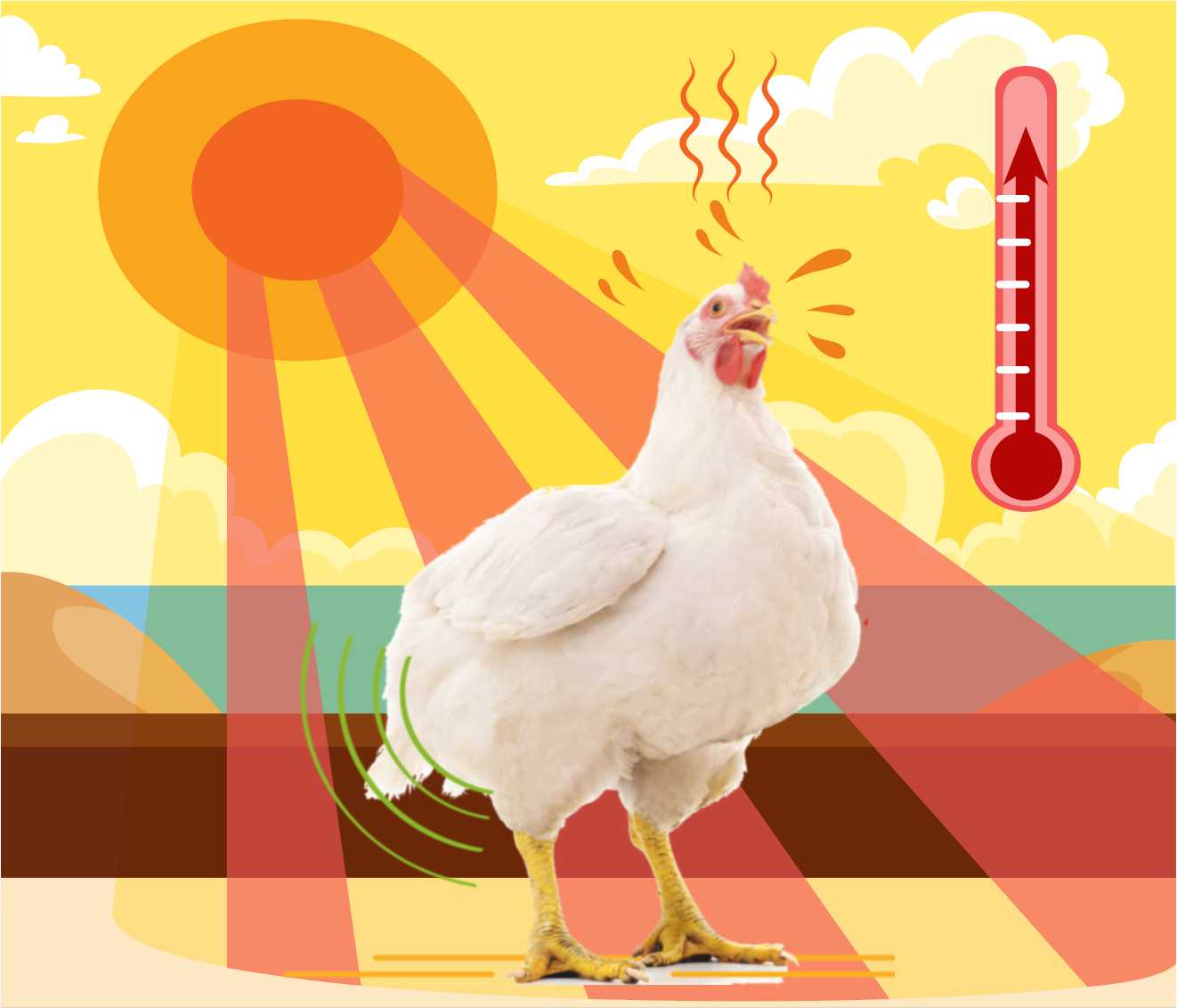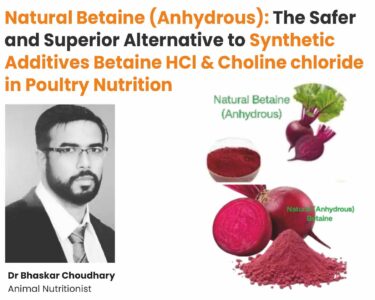Phytogenic Feed Additives Intervention: Mitigating Heat Stress in Poultry Birds


Dr.Partha P. Biswas
M.Sc.,Ph.D.,F.Z.S.,F.Z.S.I.
Former Asso. Professor & H.O.D.,
Dept. of Zoology, R.K.Mission V.C.College,
Kolkata ,W.Bengal.
Senior Consultant, Aqua-Vet inputs,
Fin-O-Wing Formulations, Kolkata-700084
The chicken industry is becoming more vulnerable to environmental shifts, particularly high temperatures. Open-sided poultry species are susceptible to heat stress, negatively impacting growth and productivity. Factors determining heat stress include temperature radiation, humidity, metabolic rate, age, and duration. Modern commercial broilers are more sensitive to heat stress, making understanding and controlling environmental conditions crucial for poultry production and health. High temperatures in birds reduce antioxidant capacity, requiring food handling and expensive cooling. Understanding and controlling environmental conditions is crucial for poultry production and health.
Thermoregulatory Device in Chicken
Unlike mammals, birds do not have sweat glands, but they have developed a number of behavioral adaptations to cope with heat, including increased breathing rate, panting and raised wings. Commercial poultry prioritize high production, making broilers more sensitive to environmental stresses, and affecting meat quality and immune problems. Under conditions of heat stress, metabolic heat increases, and the animal succumbs to hyperthermia. In summary, it can be concluded that high ambient temperature outside the thermoneutral region during the production phase has a bad effect on meat production, meat quality and causes serious immune problems in broilers.
Heat Shock Proteins of Poultry Birds During Heat Stress
Heat shock proteins (HSPs) are stress proteins found in all living organisms that are activated by high environmental temperatures to protect cells from stressors such as heat. The 70 kDa heat shock proteins (HSP70) are a family of proteins known for their potential role in thermotolerance and widely regarded as cellular thermometers. Over expression of HSP70 has been observed under oxidative stress, leading to mitochondrial reactive oxygen species scavenging and pulmonary endothelial protection against bacterial toxins. They keep cells in order by synthesizing other proteins, attract immune cells and participate in protein assembly and degradation. Higher HSP expression is associated with better heat tolerance and is produced by all living organisms in high temperature environments.
Effects of Heat Stress in Poultry Birds
Reduced voluntary feed intake which affects the functionality of the entire digestive system High environmental temperatures activate the hypothalamus–pituitary axis, brain-gut axis and elevate plasma corticosterone concentrations, affecting the digestive system’s functionality.
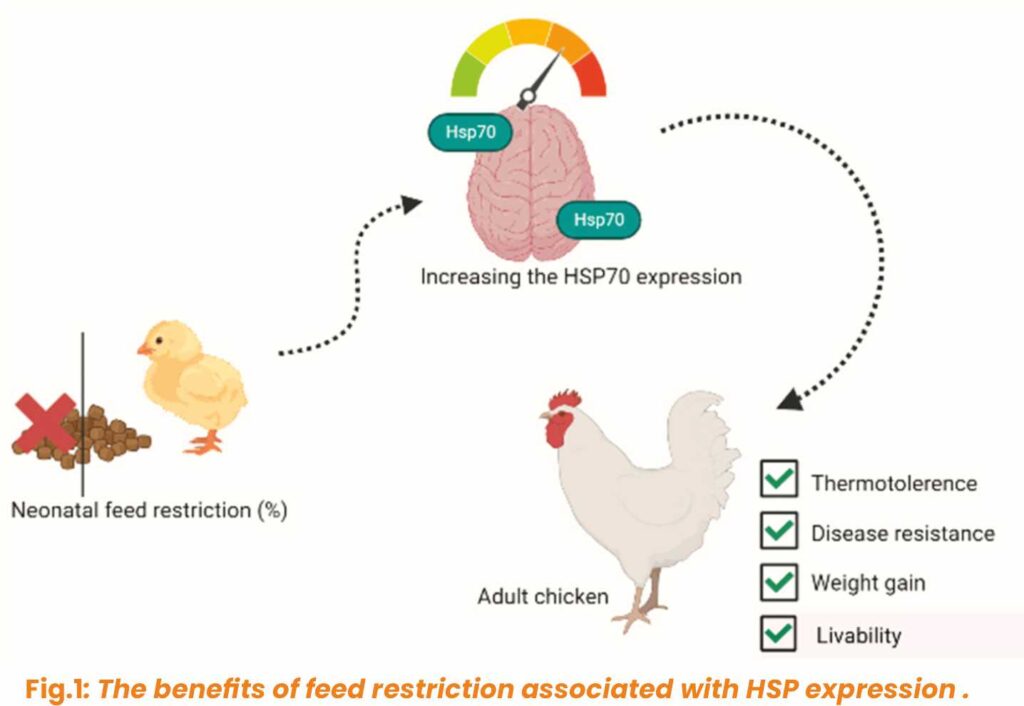
This leads to changes in motility, flux patterns, secretory activity, content viscosity and pH Generation of ROS (reactive oxygen species) and the efficacy of the antioxidant defense system deteriorate. Overproduction of ROS in mitochondria can damage proteins, lipids, and DNA Heat stress can impair the feeding process, nutrient absorption and utilization, although water intake increases rapidly Upregulation of adipokines secretion (leptin and adiponectin) and the expression of their receptors can negatively regulate feed intake and calorie consumption thus resulting in decreased metabolic heat production The decline in trypsin, chymotrypsin and amylase (intestinal secretion) due to reduced feed intake often results in impairment of digestive functionality, nutrient digestibility Hypoperfusion and an increase in blood flow to the skin surface occur as an adaptive response of the circulatory system to stabilize blood pressure and promote heat loss It is known that heat challenge has an immune-suppressive effect.
Use of Dietary Phytochemicals to Reduce Heat Stress
Experimental studies on poultry birds suggest phytochemical ingestion may reduce heat stress effects. These phytochemicals can directly or indirectly influence genes and metabolic pathways, with stress reduction linked to antioxidant qualities.
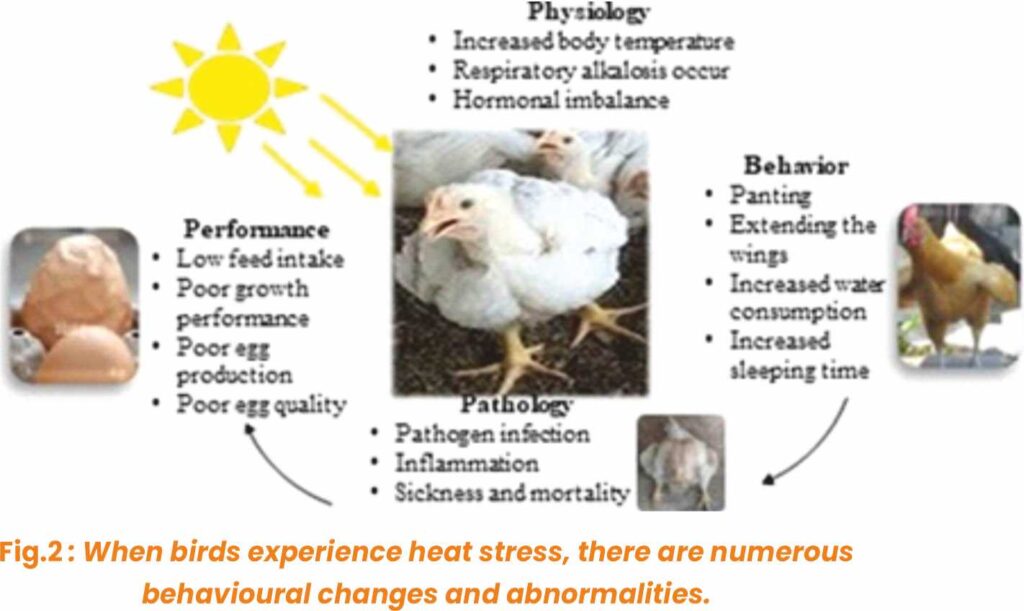
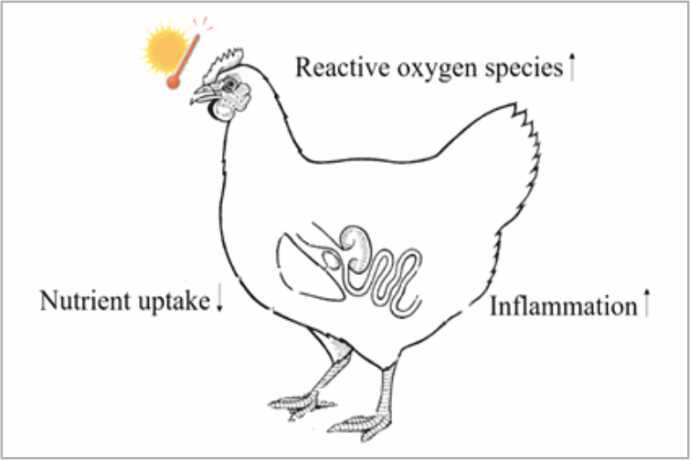
Fig.3: The chicken’s response to being overheated. Chickens raised in high temperatures produce more reactive oxygen species and show signs of immunological inflammation in addition to consuming less food.
Mitigating Heat Stress Using Epigallocatechin-3-Gallate (EGCG), A Secondary Metabolite in Green Tea
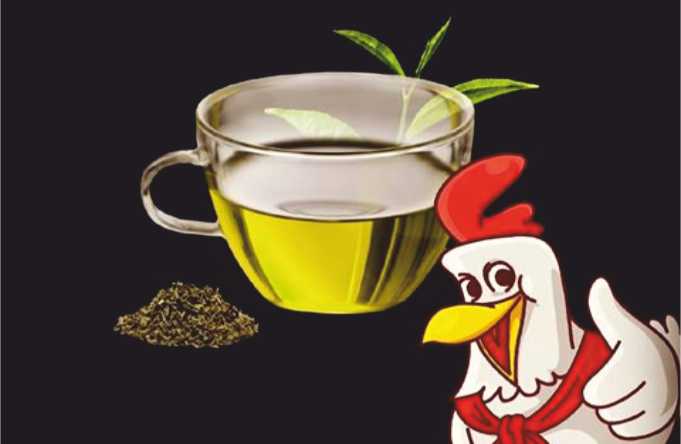
Green tea’s most prevalent catechin, EGCG, is thought to be its most bioactive ingredient and possesses potent antioxidant properties. The primary cause of heat stress-induced oxidative stress in poultry is damage to tissues and cells, which is mostly manifested in an increase in MDA (malondialdehyde) concentration in such tissues and cells. It has been demonstrated that adding the polyphenol EGCG to broilers housed in thermoneutral environments may increase their antioxidant capacity. Acutely heat-stressed broilers may have greater antioxidant capacity and less oxidative damage in their muscles because EGCG may activate the Nrf2 signaling pathway.
Reducing Heat Stress in Broiler Chickens With Additional Ginger (Zingiber Officinale) and Onion (Allium Cepa)

Onion and its derivatives including saponins, aglycones, quercetin, cepaenes, flavonoids, organosulfurs, and phenolic compounds showed various pharmacological properties and therapeutic effects.When broilers are heat stressed, the combination of onion and ginger supplements increases the nutrition of the groups more than no supplementation.
According to research results, growth performance, carcass quality, antioxidant levels and immune system response of broilers are improved when fed 10 g of ginger and and 2.5 g of onion during heat stress. Ginger contains substances with powerful antibacterial and antioxidant properties, including chagaol, ginger diol and ginger diol. Ginger (2%) added to broilers suffering from heat stress significantly improved blood biochemical parameters and growth indicators compared to the control group.
Seeds of Black Cumin (Nigella Sativa) improve Bird’s Ability to Live in Heat-stressed Conditions
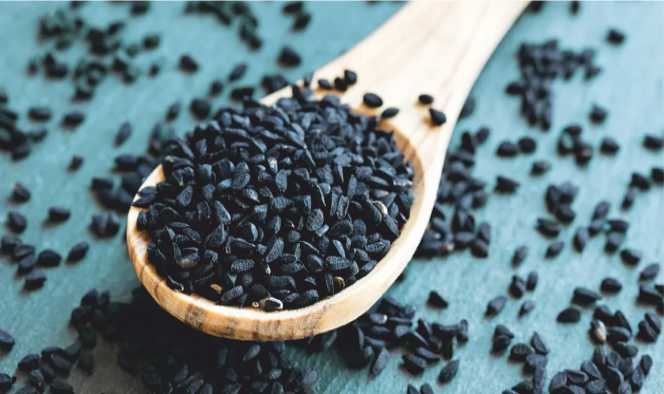
Black cumin seeds have been shown to have pharmacological and antibacterial properties and also contain drug-like compounds. The volatile oil (0.4-0.45%) contains saturated fatty acids, which include: nigellone, which is the only component of the carbonyl fraction. oil, thymoquinone (TQ), thymohydroquinone (THQ), dithymoquinone, thymol, carvacrol, α and β-pinene, d-limonene, d-citronellol, carvacrol, t-anethole, 4-terpineol and longifolin etc. Thymoquinone improves hatchability, pos-thatching performance and antioxidant activity of thermally stressed broiler embryos. Black cumin extract has been shown in trials to reduce serum MDA levels and protect against oxidative stress.
Hot Red Pepper (HRP) Reduces Heat Exhaustion in Birds
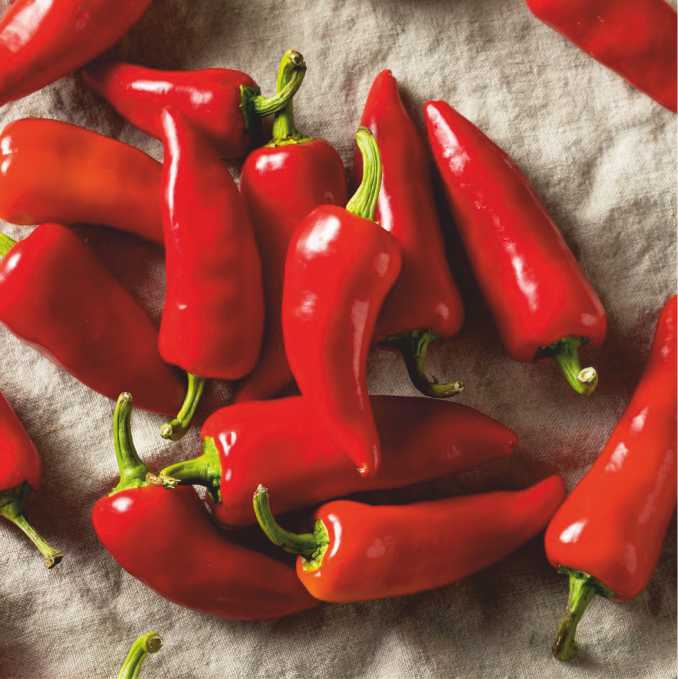
Ascorbic acid, or vitamin C, is abundant in capsaicin, a terpenoid found in HRP that helps prevent heat exhaustion in birds. Carotenoids, which are rich in vitamins E, C, and provitamin A (beta carotene), are known to have powerful antioxidant qualities that help prevent the damaging effects of free radicals and, in certain situations, oxidative stress, which can lead to cell death in broilers. Furthermore, it has been found that adding capsaicin, an active ingredient in red pepper that is present in grill feed at a dose of 50 mg/kg, can lessen the harmful effects of heat stress.
Moringa (Moringa Oleifera)helps to Survive Birds Under Heat Stress
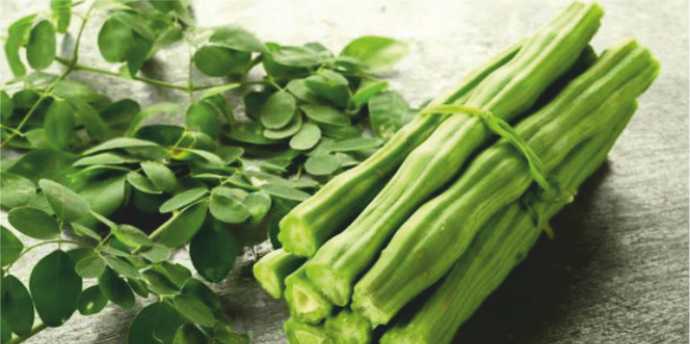
Moringa leaves contain high levels of total polyphenols (260mg/100g), b-carotene (34mg/100g), kaempferol (34mg/100g), quercetin (100mg/100g), as well as a total antioxidant capacity of 260mg/100g. Kaempferol and quercetin are the flavonoids present in moringa leaves and possess strong antioxidants. It has been found that 0.3% incorporation of M. oleifera leaf meal improves the performance and physiological parameters of broilers and also helped the birds survive under heat stress.
THYME (THYMUS VULGAIS) Protects Chicks Against Heat Stress

The two most important bioactive compounds in this plant are carvacrol and thymol, which may be the primary source of thyme’s pharmacological actions. Thus research has identified linalool, thymol, carvacrol, gamma-terpineol, and geraniol as the primary components of thyme. Dietary thyme essential oil (150–200 mg/kg) is more effective at shielding chicks from the harmful effects of heat stress while also enhancing immunological function and development performance. One material that may be able to improve growth in broilers located in hot climates is thyme oil.
Coriander (Coriandrum Sativum) Seed in Ameliorating the Impact of Thermal Challenges
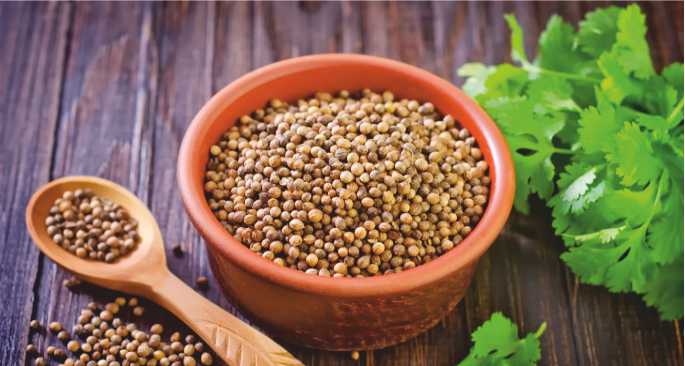
According to research, broilers under heat stress that are fed 2% coriander seed have higher feed intake, weight gain, reduced panting, and higher levels of corticosterone. The broilers’ poor intestinal absorptive capacity and shape may be connected to the rise in corticosterone levels during stress. Furthermore, according to a different study, adding 2% coriander to the diet helps broiler birds by lessening the effects of heat shock. The supplement, according to the author, benefitted broilers that were experiencing heat stress and enhanced their blood parameters, immunity, and overall performance.
Cinnamon (Cinnamomum Zeylanicum) Powder as Antioxidant in Thermally Challenged Birds
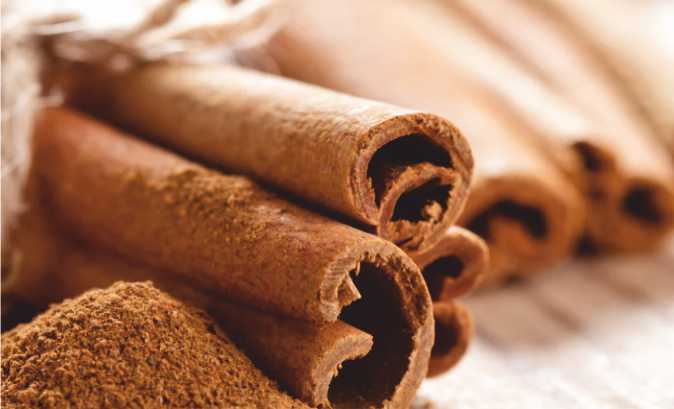
The common herbal plant, cinnamon contains different active phenolic compounds, which include flavones, catechin, isoflavones, flavonoids and other phenolics. The main bioactive constituent of cinnamon is cinnamaldehyde. The phenolic components function as antioxidants and can effectively scavenge ROS. Cinnamon supplements help in homeostasis due to the reduced pH caused by heat stress. It has also been reported that an increase in the activity of CAT, total antioxidant capacity and SOD and a decrease in the MDA when birds were placed in a thermally challenged environment during their finishing phase.
Turmeric (Curcuma Longa) for Heat-stressed Broilers
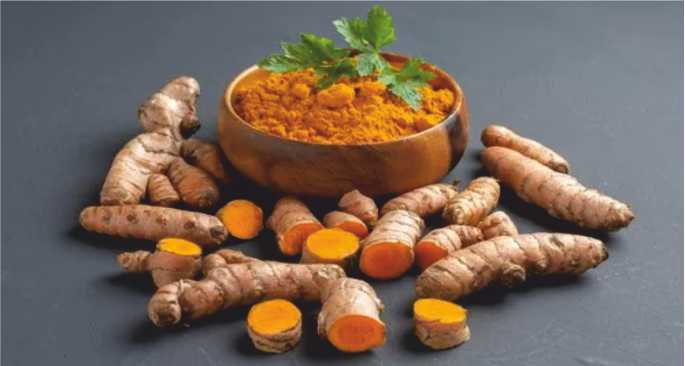
The yellowish pigments of turmeric, namely demethoxycurcumin, curcumin, and bisdemethoxycurcumin, are commonly referred to as curcumoids. Curcuminoids are an antioxidative compound found in turmeric. Researchers have shown the effects of turmeric powder supplement at 0.3 and 0.6 g/kg when administered to birds under heat stress. The superoxide radicals are neutralized, and there is an increase in the activity of SOD and CAT (ROS-removing enzymes or antioxidant enzymes ) and a decrease in MDA in broilers. The increased level in MDA indicates oxidative damage in liver of heat stressed broilers.
Conclusion
Heat stress can hurt poultry birds by making them grow slower, weakening their immune system, causing intestinal inflammation, and causing other health problems. It can also trigger oxidative process. But using natural substances called phytogenic compounds can help chickens who are raised in hot conditions.But more research is needed to understand the molecular changes made by medicinal herbs and the interactions between their active components, gut microbiota, and gut barriers. By using these approaches, we can improve chicken welfare and make poultry production more sustainable and efficient.


